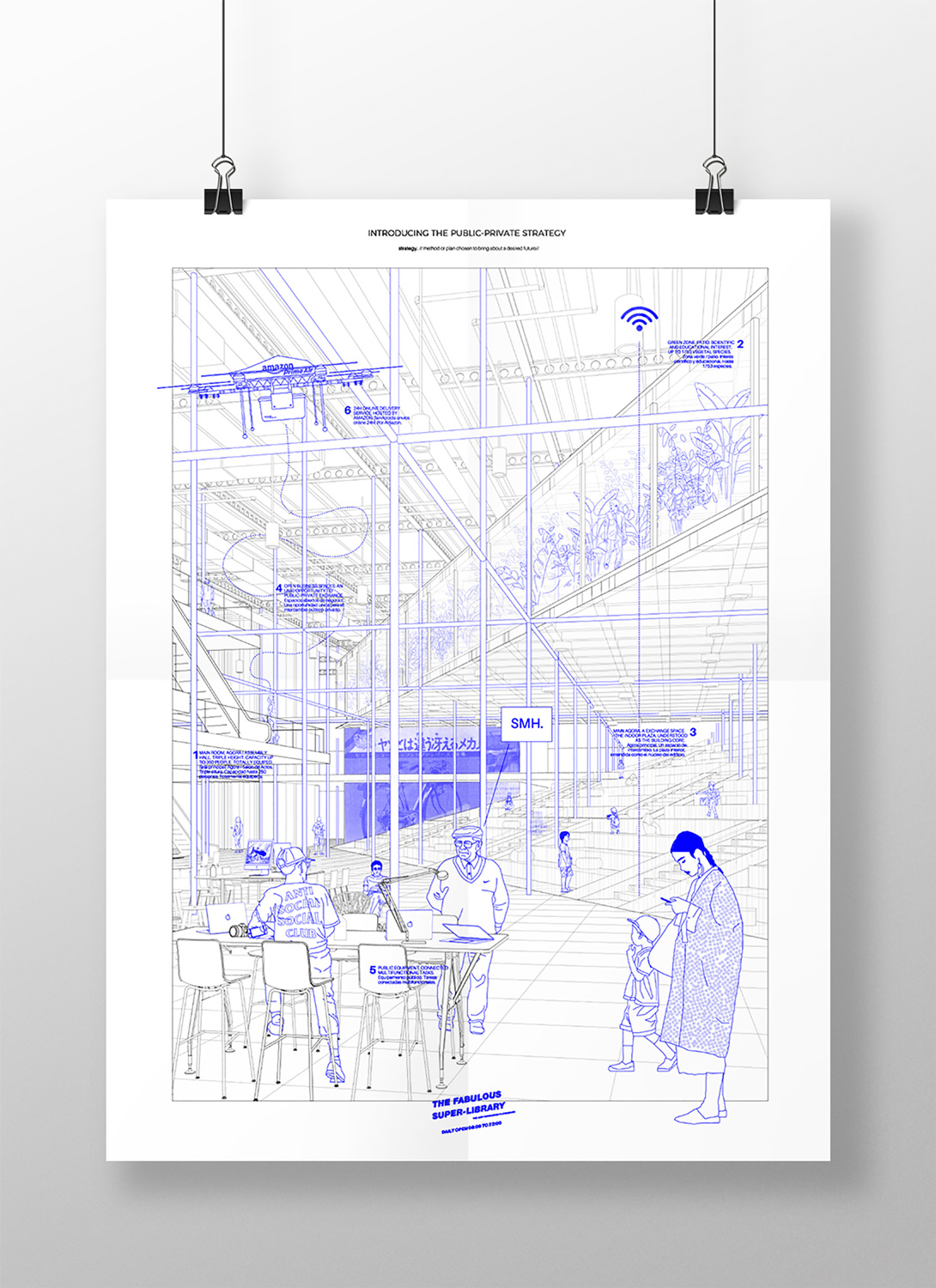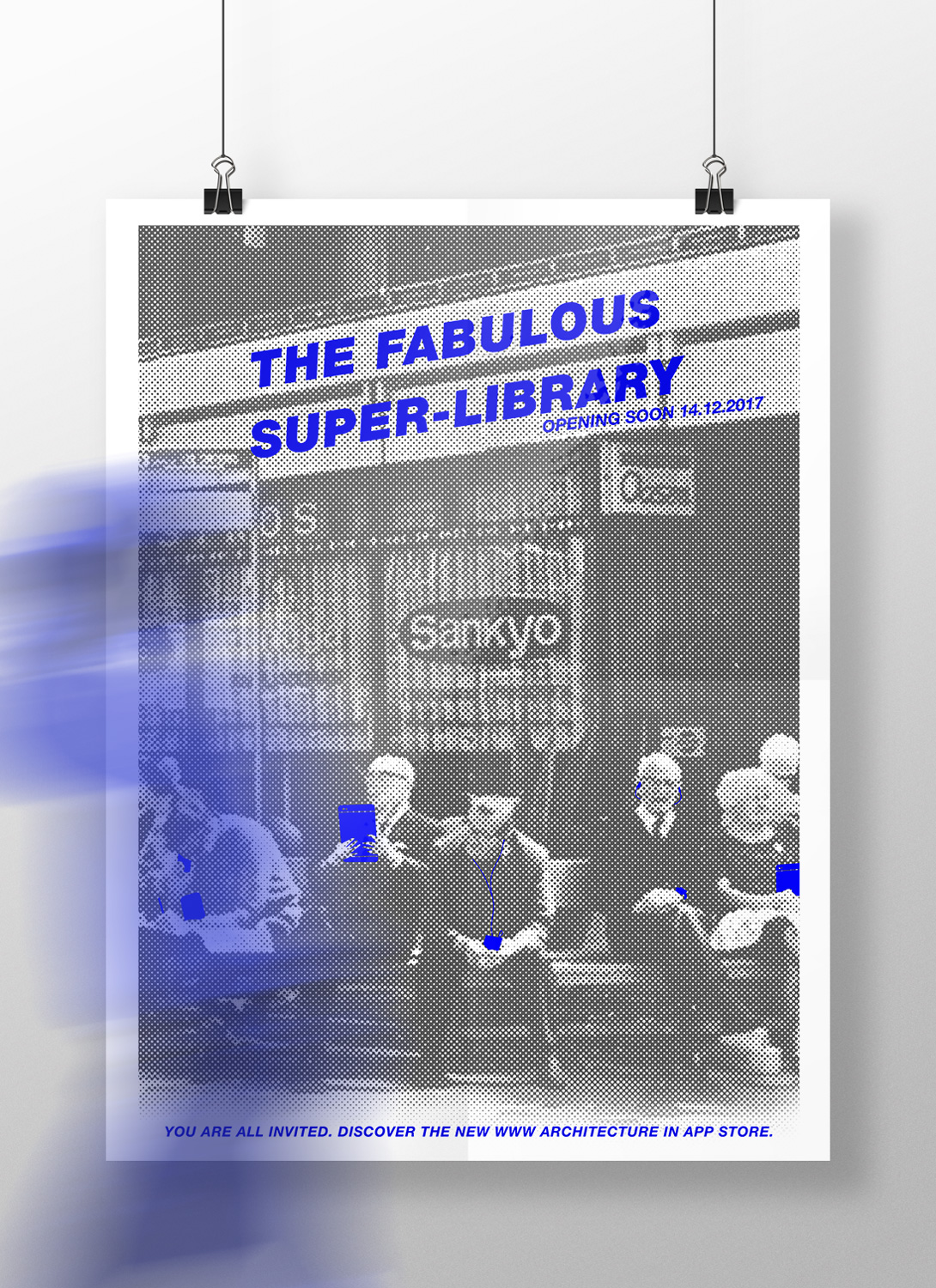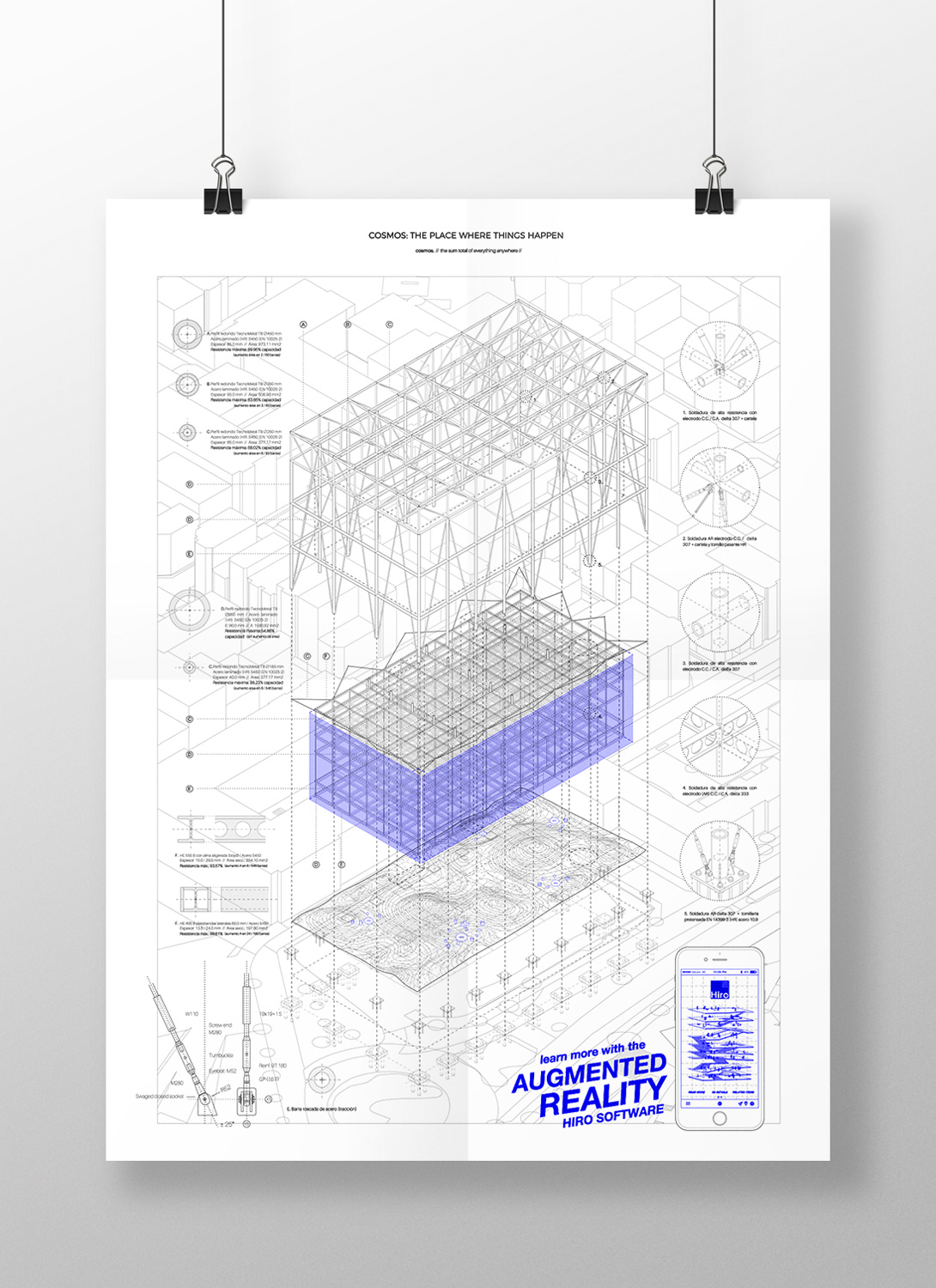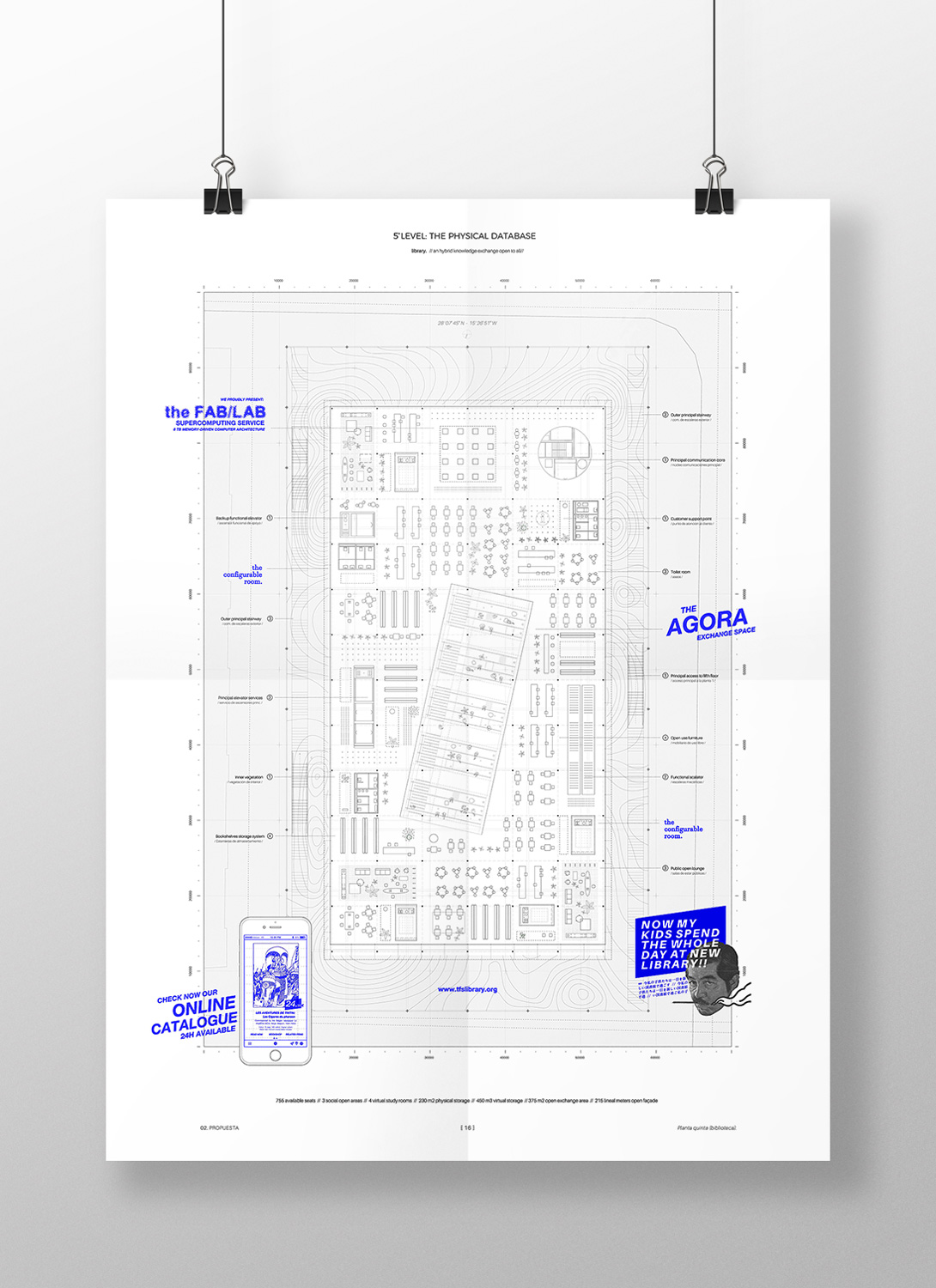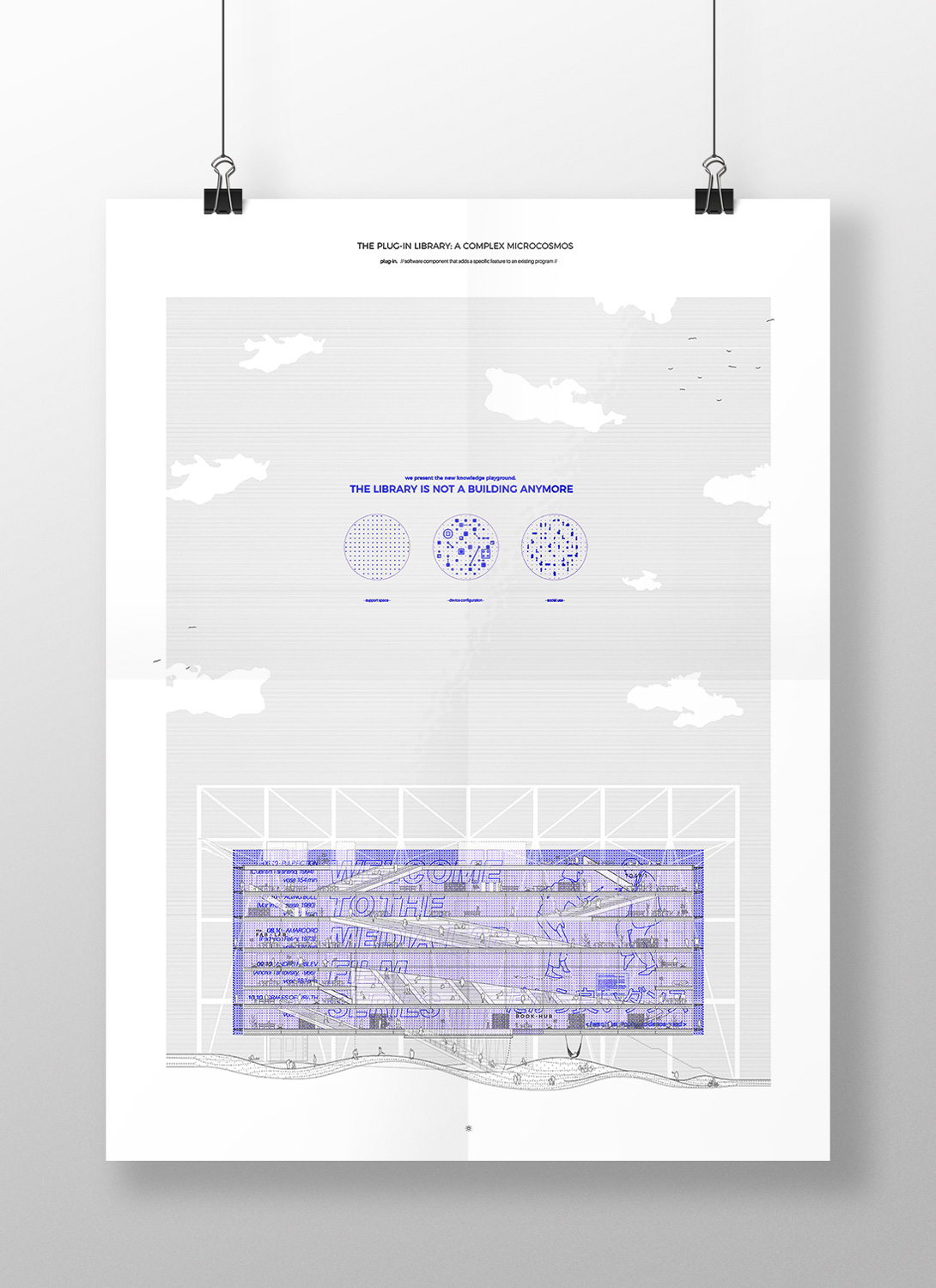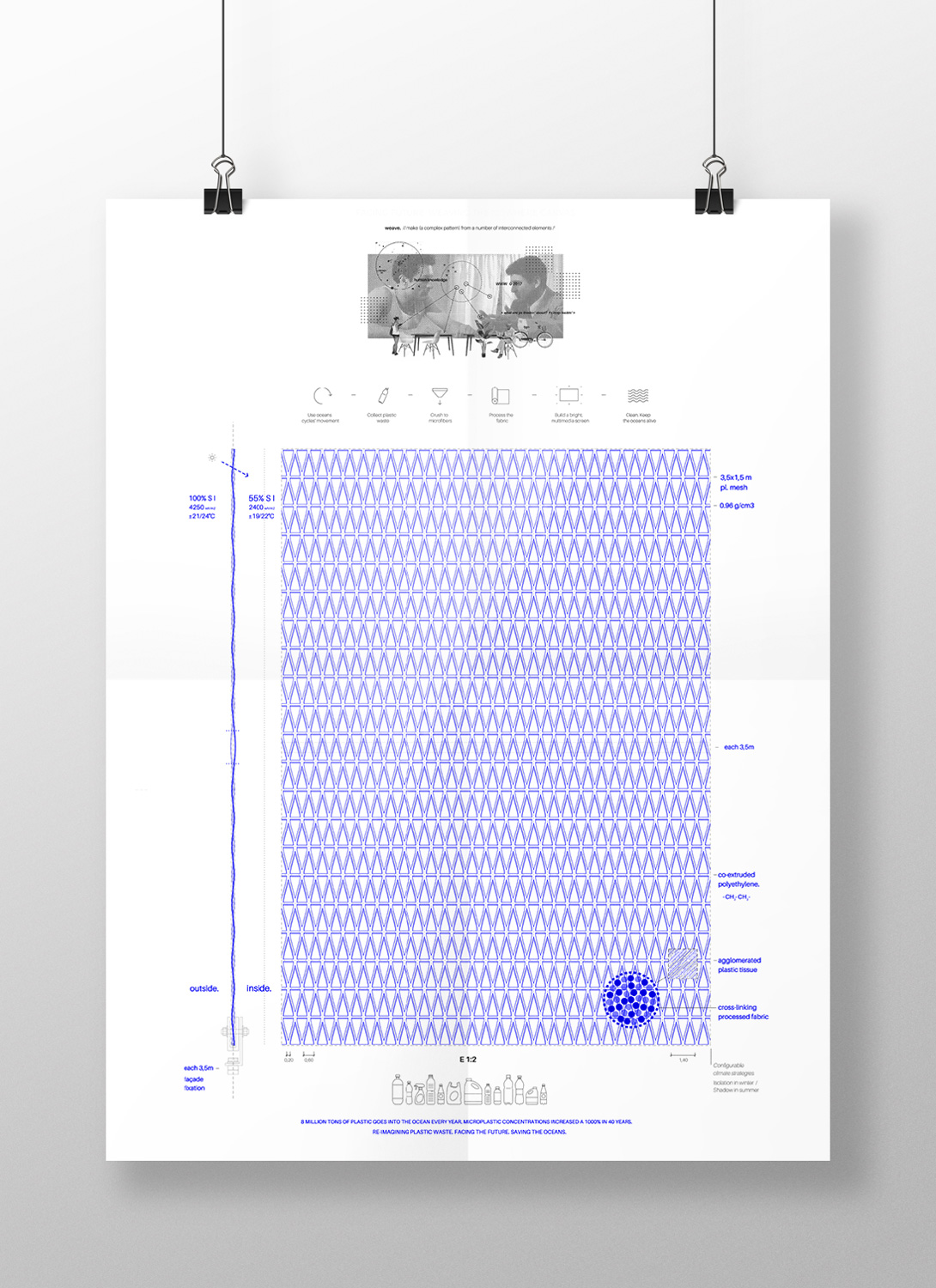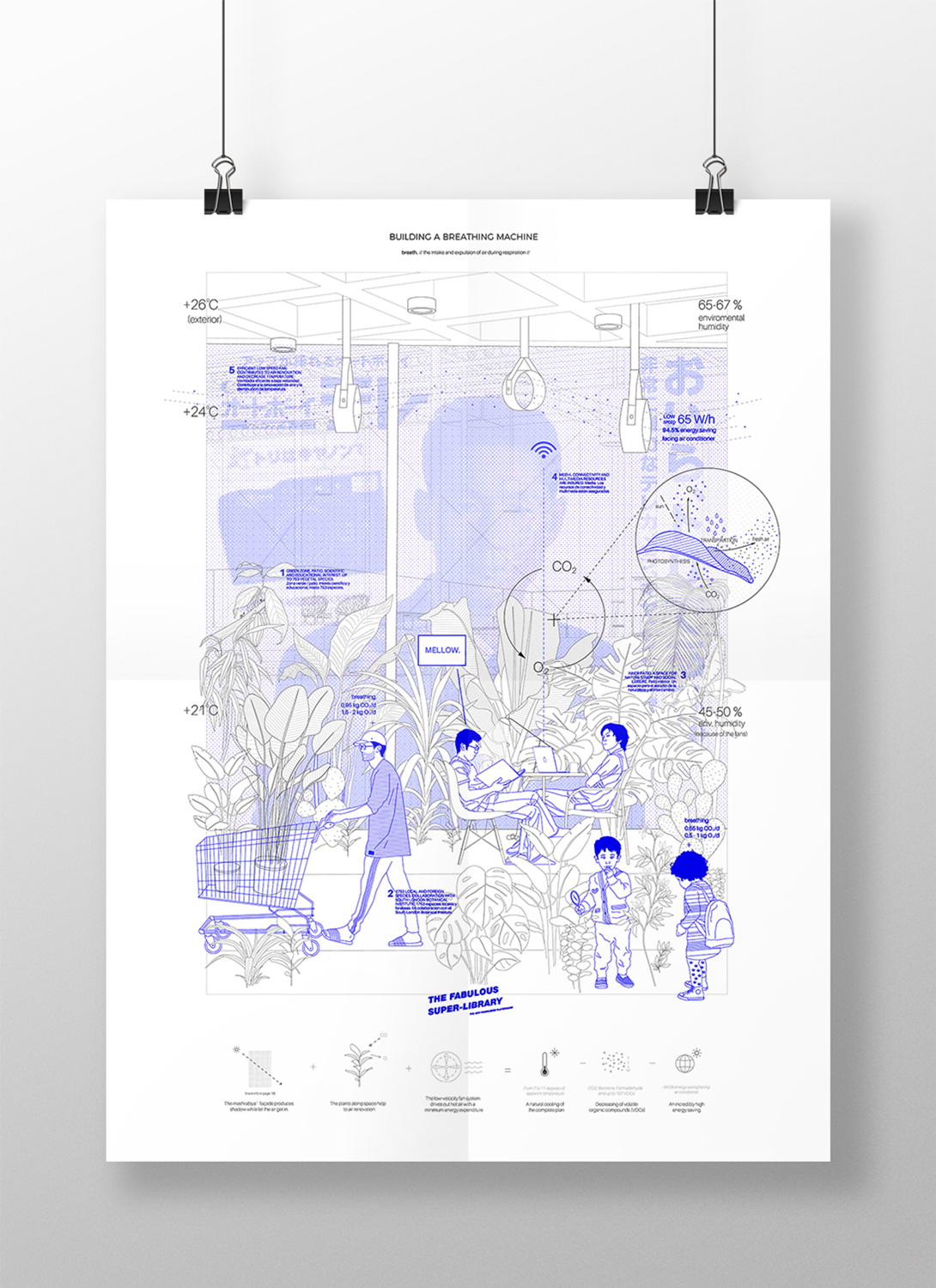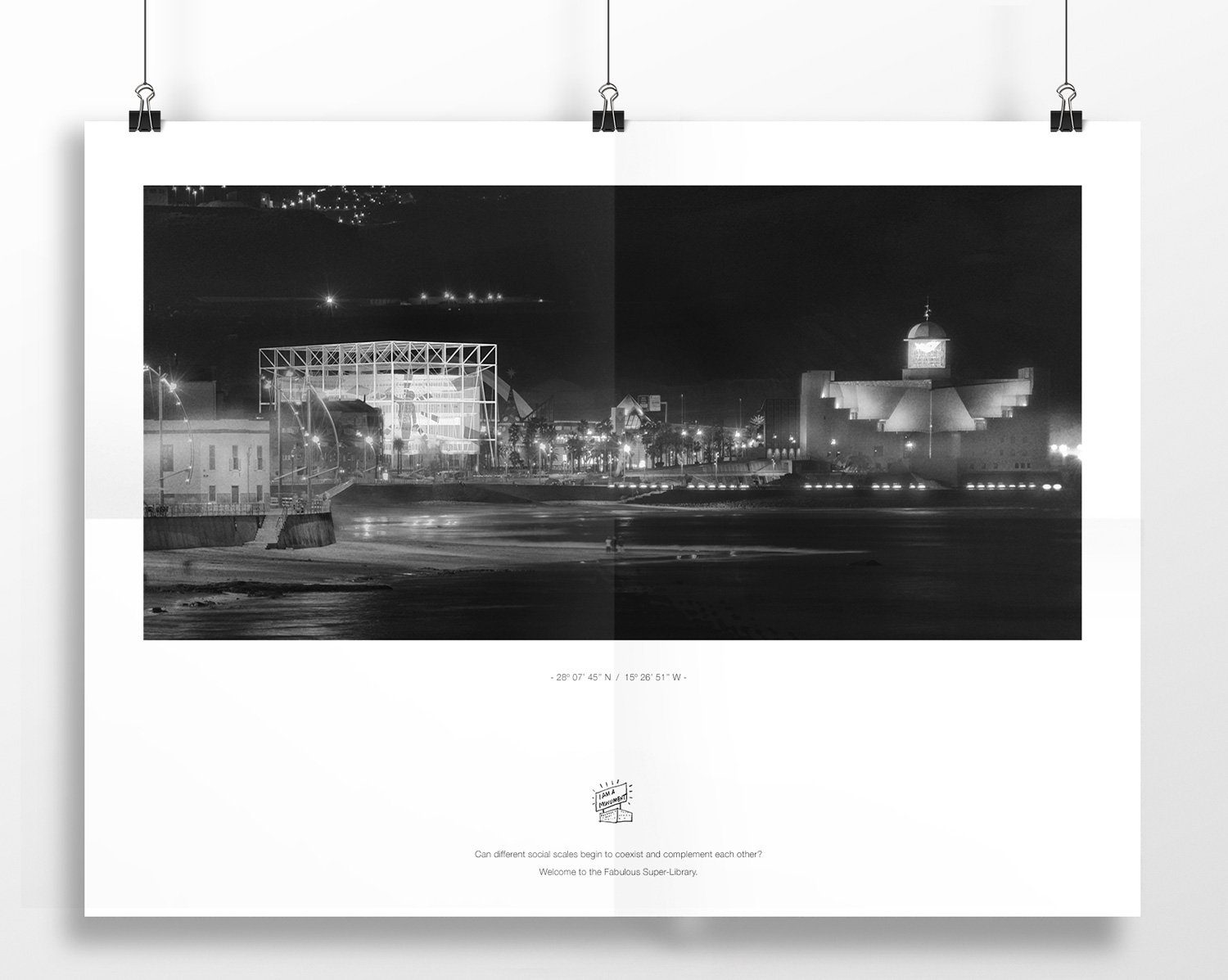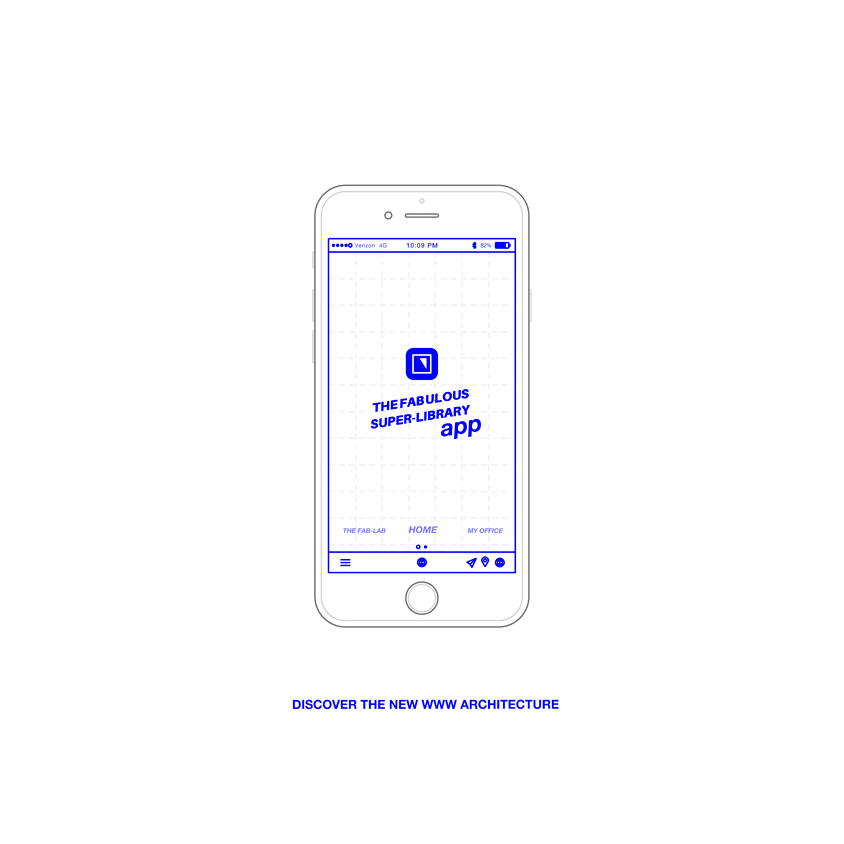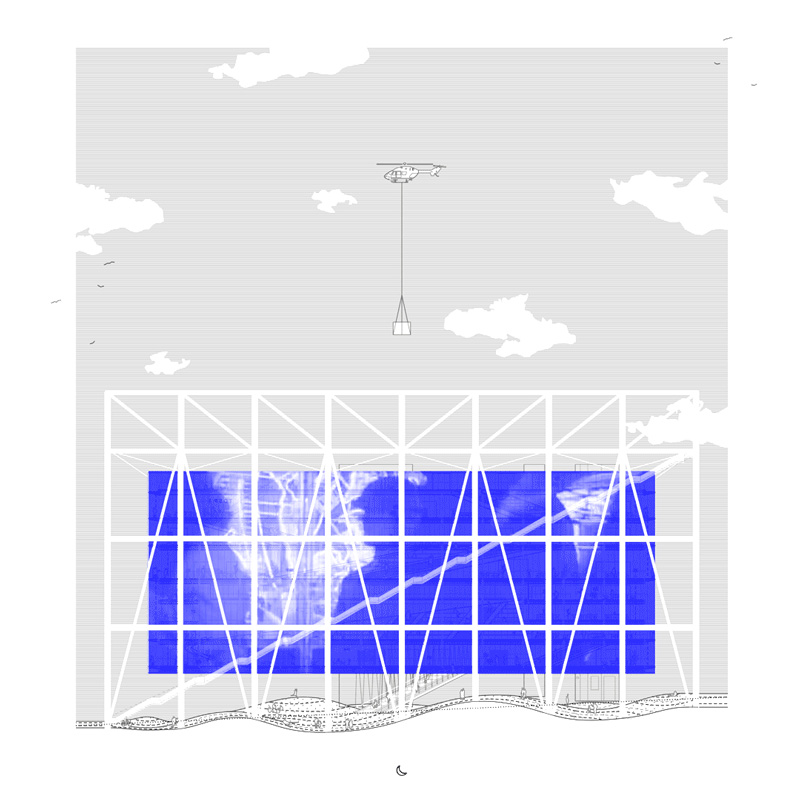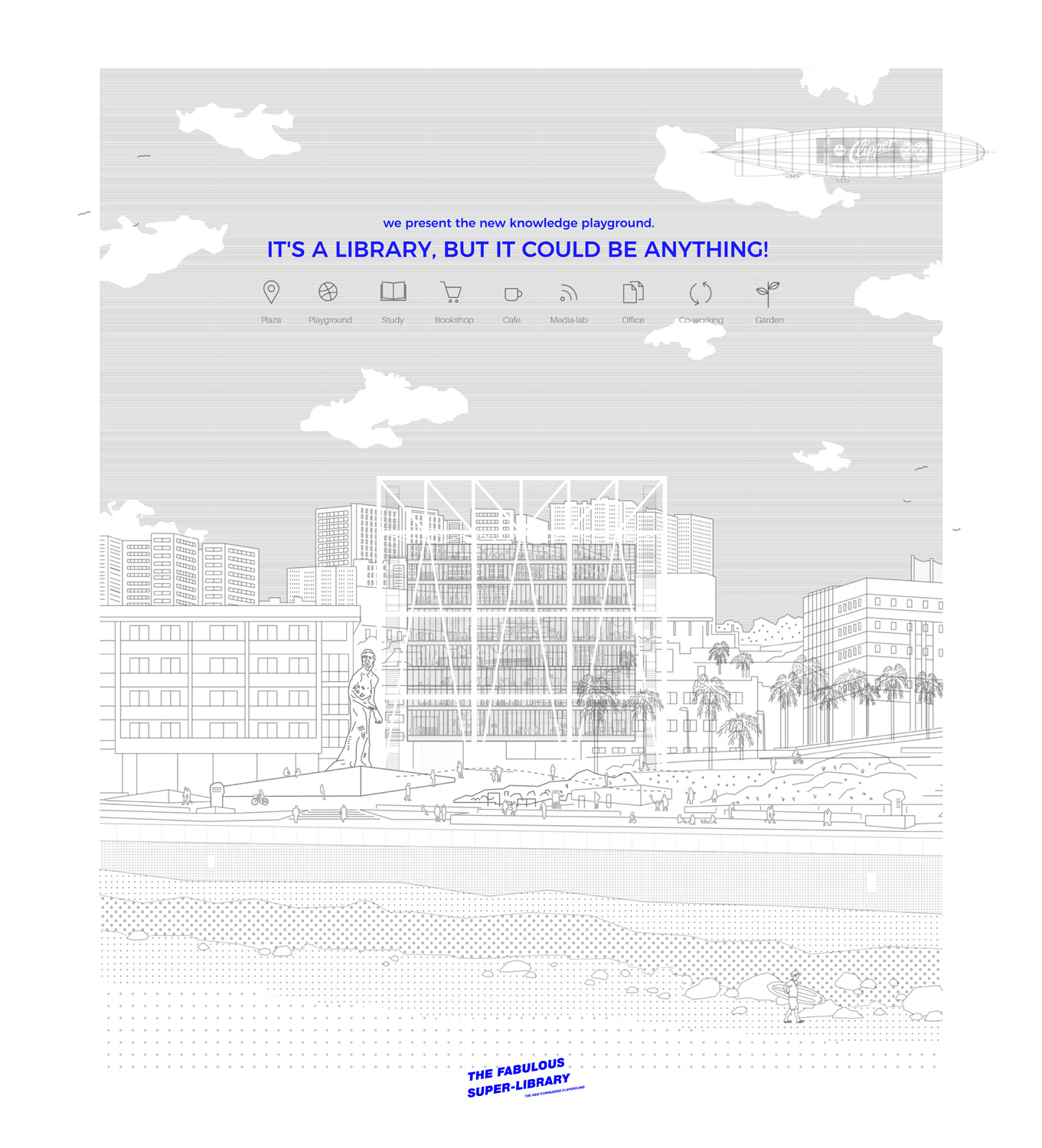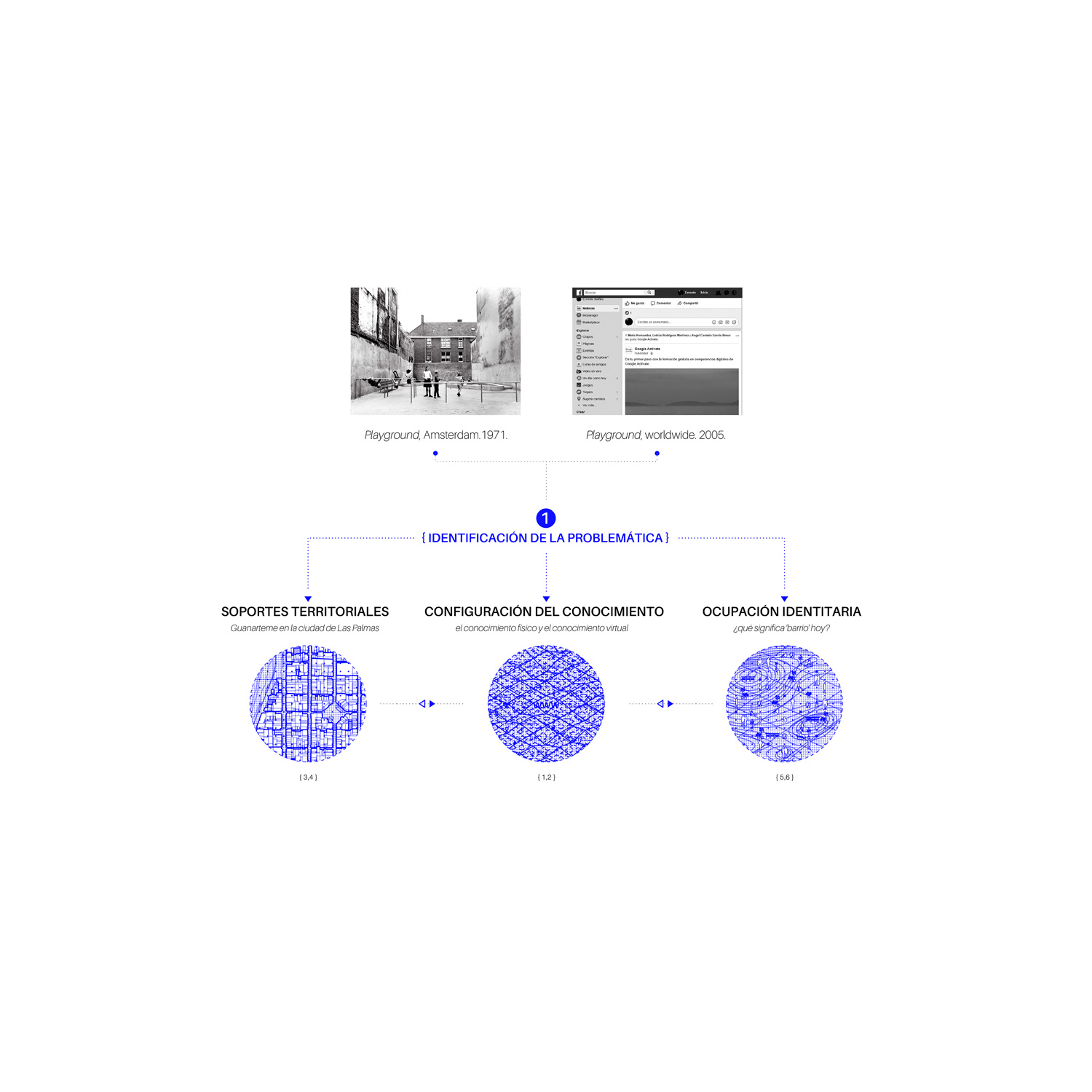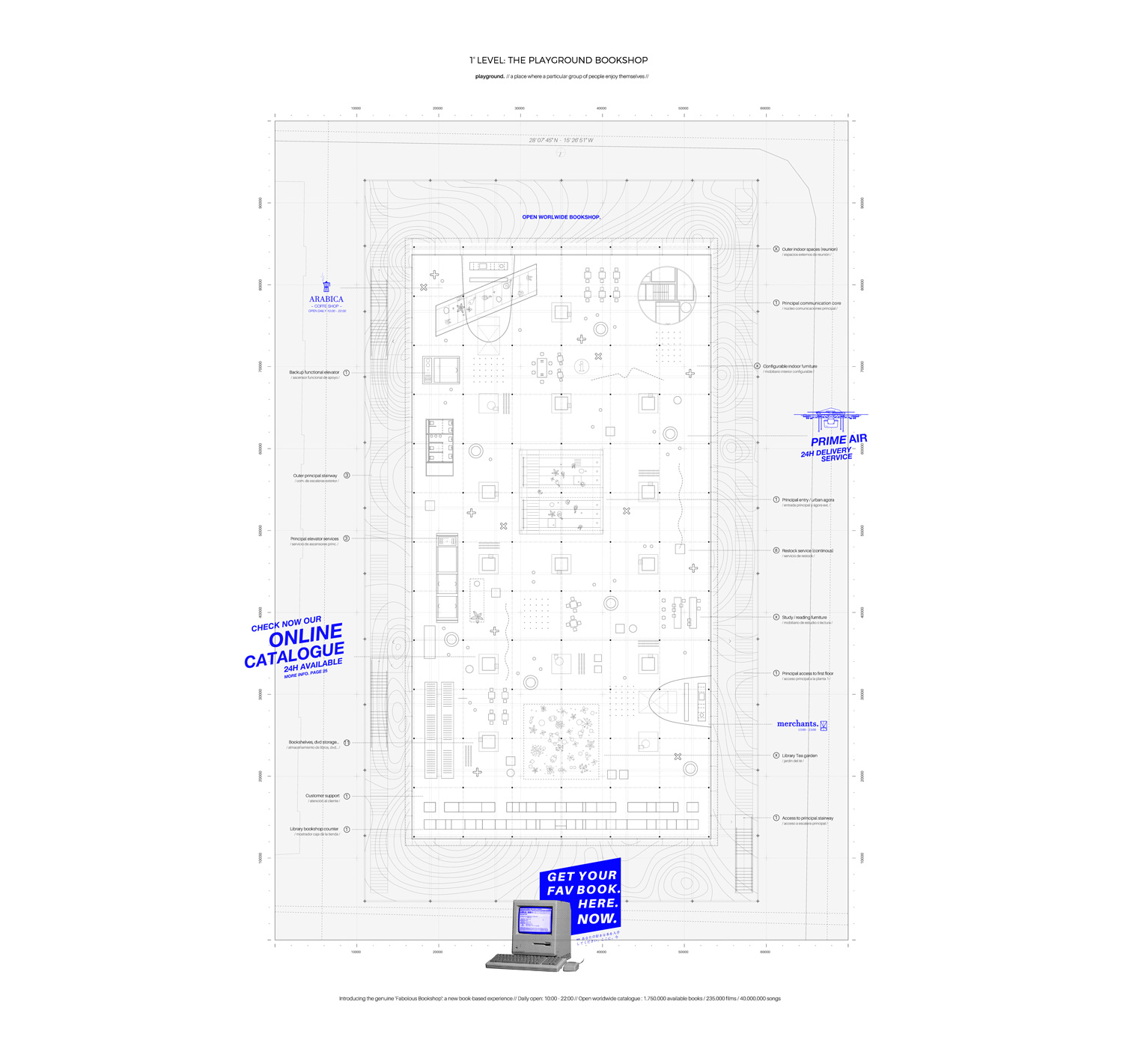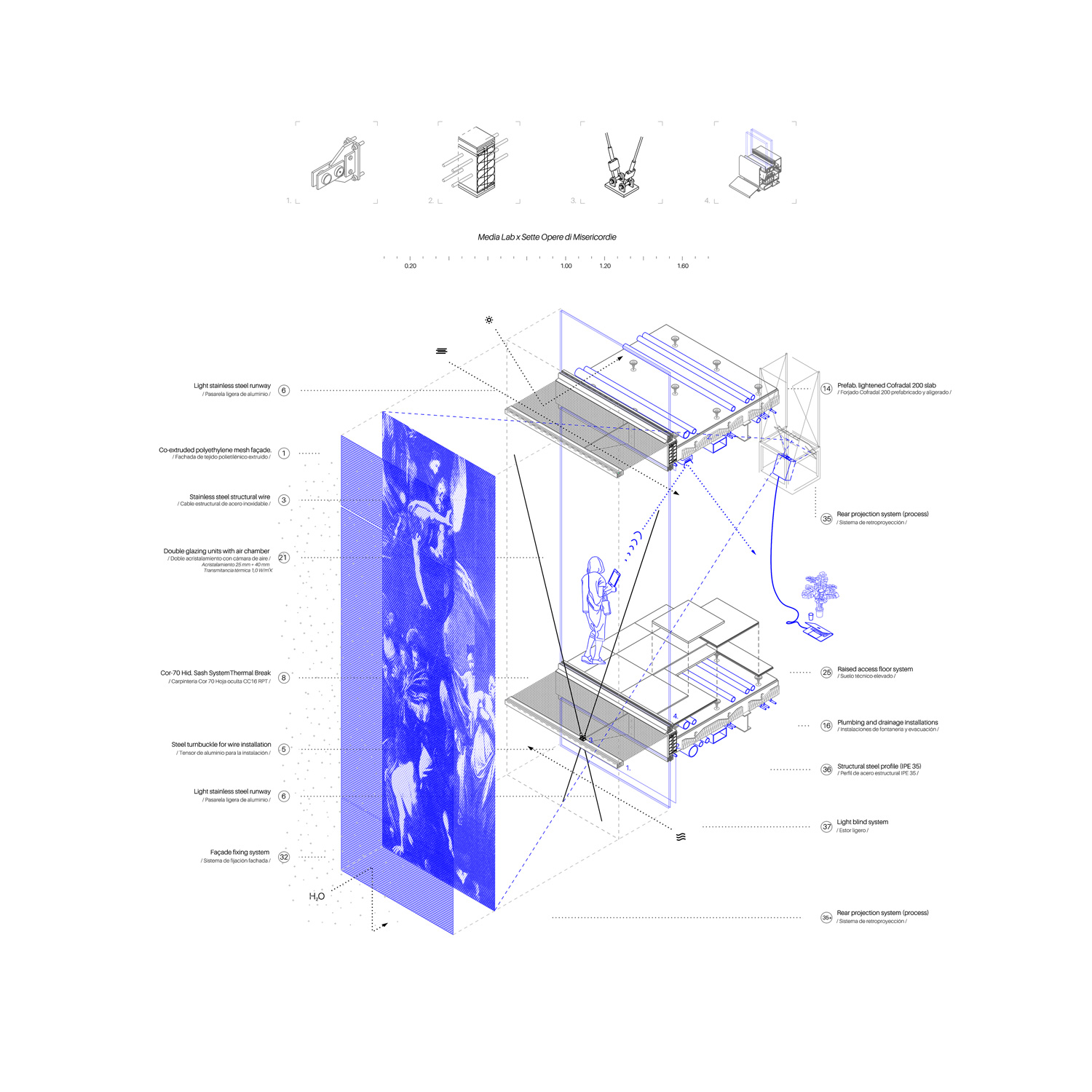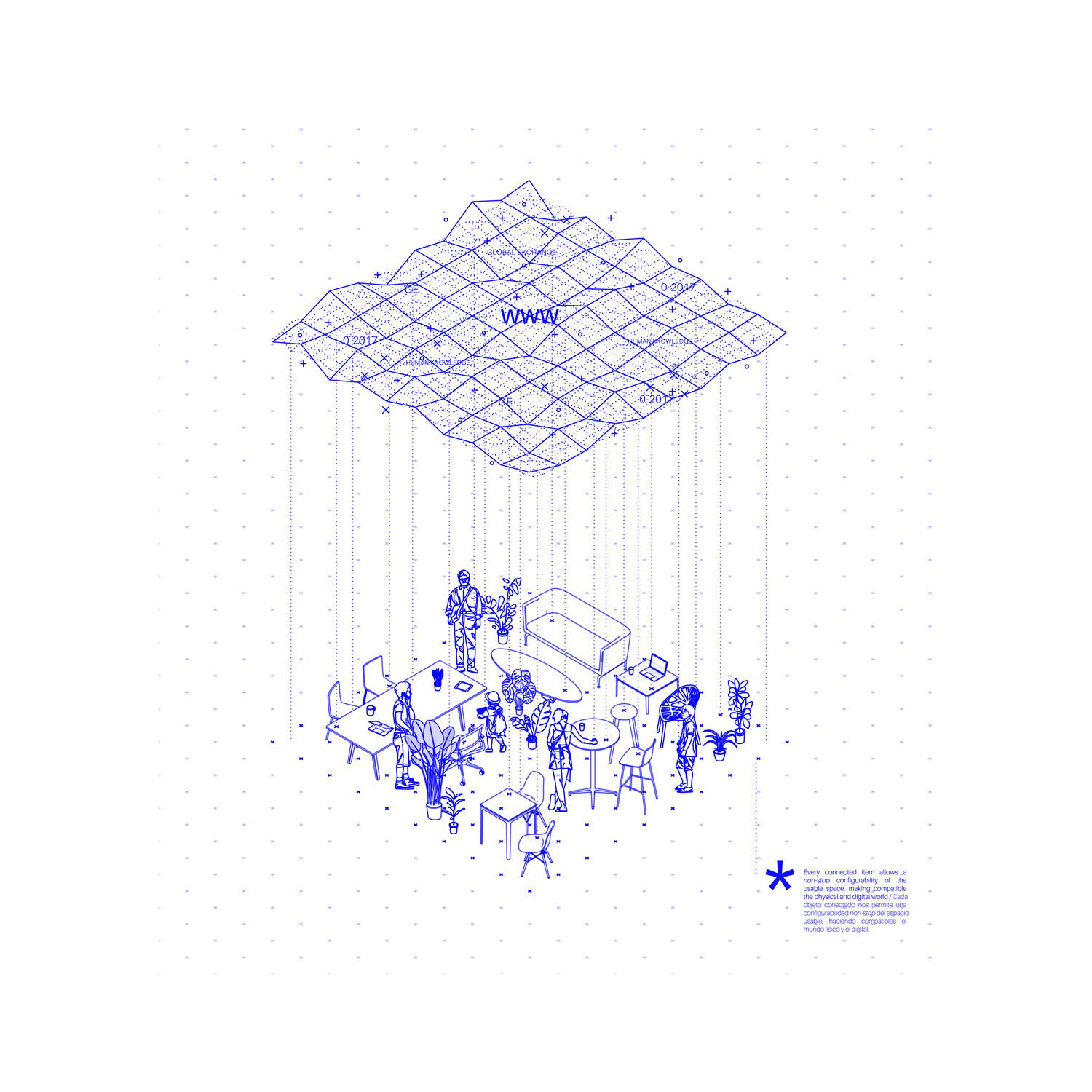☉ The Fabulous Super-Library is an academic project by Ernesto Ibáñez for ETSA Las Palmas de Gran Canaria in 2018. It is located in Las Palmas Spain in an urban setting. Its scale is medium. Key materials are metal and polycarbonate.
The point is: people don’t go to libraries. However, they are still going to fast-food restaurants and malls, even if there is no logical reason to prefer paying for a bad hamburger rather than read a book for free. So, our procedure is to appropiate the marketing and visibility strategies these big companies have, and use it in our own purpose. Tiny organic food shops aren’t working. Folkpolitics aren’t working. The ‘think global, act local’ implies a withdrawal, we think global and act global to build a counterhegemony.
Updates and plugins actualize our gadgets constantly, but architecture seems to deny itself to this kind of changes, just adding some strange inventions. We do not need automatic doors nor fingerprint readers, instead of that, we need libraries that can become playgrounds if people claim that.
Welcome to The Fabulous Super-library
I don’t believe in the ‘think global, act local’ slogan, the motto of the project was to think global and act global, in order to build a model that could be exportable, understanding that the problems that touch us are essentially the same problems that affect everybody in every part of the world. It is essentially a research about knowledge and culture, and its relationship with the current society.
Imagine a common situation in a library: you want to read a book but is not available. However, you could find the exact same book in another library, but you are not there. If both data exchange and digital reading are a reality, why am I still not able to read a book only because of my geographical location? It is a nonsense that in 2018, with the current technology, physical space still limits us the access to free culture. I think it would be great that with a simple app you could read a universal catalogue (same as Borges and ‘The Aleph’), like you are in every single library in the world at the same time. Book is still relevant. We are living a moment in which information come in tiny capsules:
tweets, gifs, memes. And this is incredibly powerful, but throughout history, knowledge has been transmitted in many different ways, so I think we do not have to defend one model or another, we have the responsibility of make them coexist. A contemporary library should aspire to become the tool that helps society to understand its past and its future.
